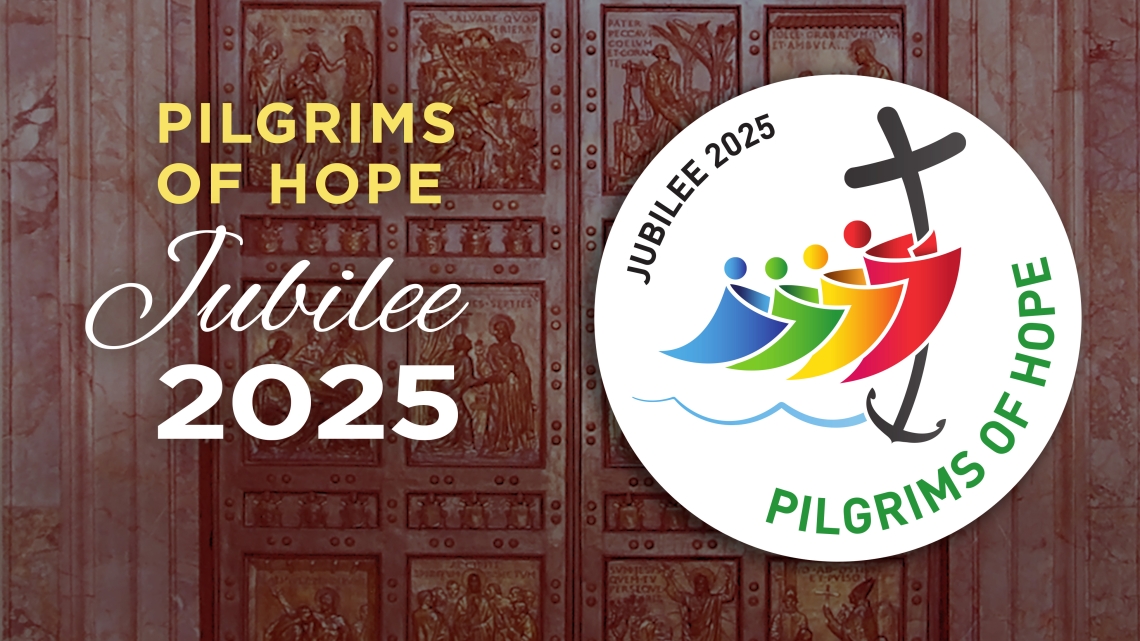March 2025: “Have mercy on us, O Lord”: The Jubilee Year and Indulgences

The opening of the jubilee door at St. Peter’s Basilica in Rome on Christmas Eve last year was a dramatic event, one seen only every 25 years. Pope Francis prayed before the door, called for it to be opened, and led a procession through the door into the basilica for Mass. By this gesture, he opened the Church’s observance of a jubilee year, a special year of prayer and pilgrimage, of penance and reconciliation. Every 25 years, the Church calls on Catholics to make a special effort to convert their lives, open the doors of their hearts wide for Christ, and rejoice in the hope of the Gospel.
Commentators from secular and from Catholic media pointed out that pilgrims gained a spiritual benefit called an indulgence by passing through the holy doors at St. Peter’s or at one of the other three papal basilicas in Rome. Many people have asked, “What is an indulgence?” An indulgence is part of the Church’s ministry to heal the consequences of sin in the world. But it is not something very well understood, even by Catholics.
Sin has a twofold reality. First, there is the guilt of the party who has committed an offense against God and neighbor. When we ask God for forgiveness in the sacrament of reconciliation (confession), God grants His forgiveness of the guilt we have incurred for violating the commandments and thus offending God and neighbor. Sin has a second reality to it as well. When we commit a sin, we also cause harm to ourselves, to others, to society, and to our world. At the spiritual level, we distort the divine image in ourselves that baptism imprinted upon us. Sometimes, we do actual physical or emotional harm to ourselves and others. Sometimes, our actions harm the society or the world around us, even seriously so. For example, driving a car recklessly violates the law, but it can lead to loss of life and damage to property, too. We might be pardoned for violating the law, but the damage done to life and property remains. That damage to life and property needs to be made right, and the task of repairing the harm done may be beyond our ability to accomplish.
This points to the reality of what Catholics call purgatory, a stage of purification after death in order to enter the blessedness of heaven with nothing left of our sins to weigh us down. Even if our sins are forgiven during the course of our life, the consequences of those sins in our life, in the lives of others, and in the world remain. We are responsible for those consequences, and we are obligated to repair the harm that we caused. In purgatory, our suffering at being held back from heaven is the cost of repairing the harm we have done in life.
Christ, Mary, and all the saints want to help us in this struggle. Christ’s unique sacrifice for us led to an infinite ocean of mercy for the world. The holiness of the Blessed Virgin Mary and of the saints also adds to this storehouse of good, which can be shared with us in our need. When a member of the faithful fulfills the conditions for an indulgence from the Church, the Church draws on that treasure of good to benefit an individual, either in this world or in purgatory.
The media made much of the indulgence gained by making a pilgrimage through one of the four holy doors in Rome. But in reality, the Church has designated more than 70 spiritual practices that can benefit a member of the faithful by way of an indulgence. For example, some of these indulgenced practices include saying the Rosary or making the Stations of the Cross. These practices are spiritual ones because the damage to one’s soul and to others that the Church is trying to heal is a spiritual one. Along with the spiritual practices the Church has identified, such as making a pilgrimage to one of the papal basilicas in Rome or, in the case of this jubilee year, making a pilgrimage to the Cathedral of the Immaculate Conception in Portland or to the Basilica of Ss. Peter & Paul in Lewiston, the penitent must fulfill other conditions as well. These are: sacramental confession any time during the period one week before or one week after accomplishing the spiritual practice, receiving holy Communion during that same timeframe, praying for Pope Francis with an Our Father and a Hail Mary or some other prayer, reciting the creed (when visiting a church is the prescribed work), and having a complete detachment from sin, even venial sin.
The practice of seeking an indulgence for oneself or for someone who is deceased is an expression of the communion of the Church, where we help each other. That is true not just with material goods but with spiritual goods as well. It can be a way to deepen the conversion of life which is the goal of each jubilee year.
Msgr. Marc B. Caron is vicar general and moderator of the curia for the Diocese of Portland.










